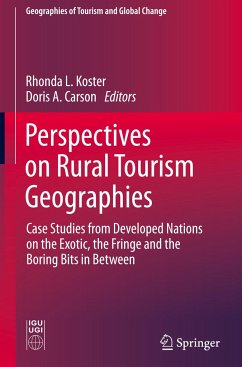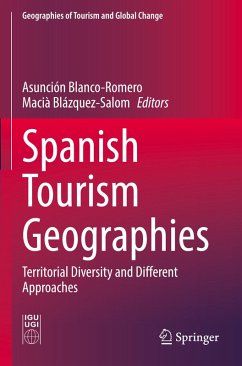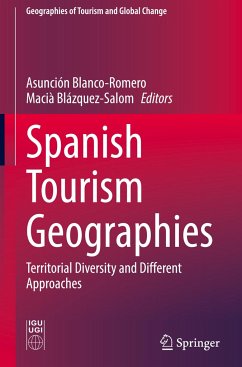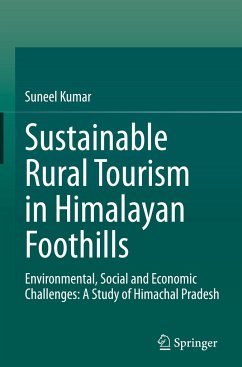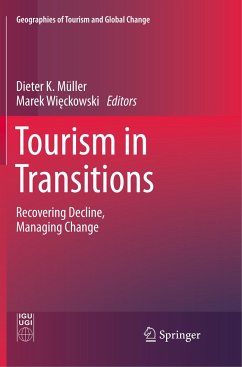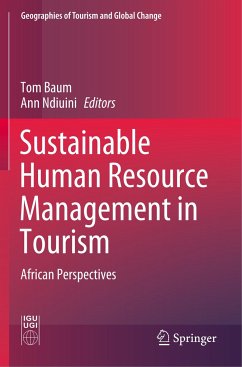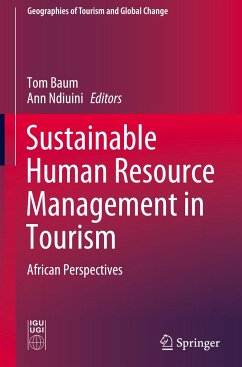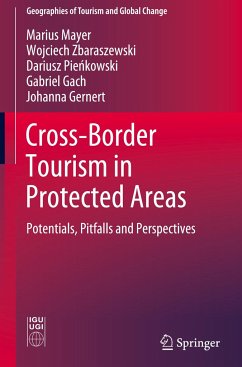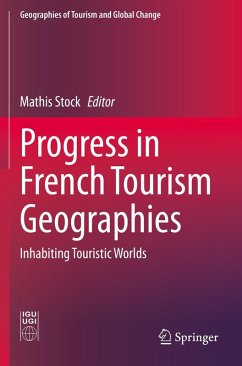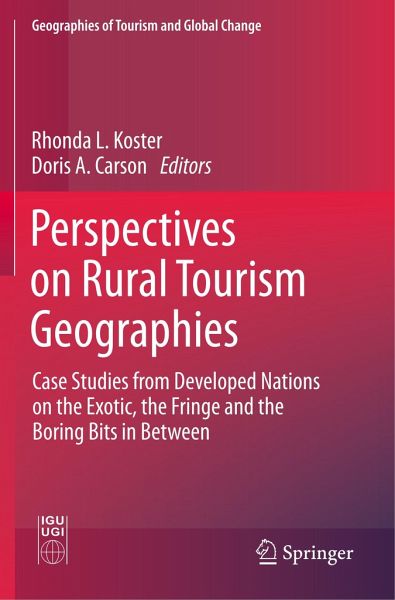
Perspectives on Rural Tourism Geographies
Case Studies from Developed Nations on the Exotic, the Fringe and the Boring Bits in Between
Herausgegeben: Koster, Rhonda L.; Carson, Doris A.
Versandkostenfrei!
Versandfertig in 6-10 Tagen
91,99 €
inkl. MwSt.

PAYBACK Punkte
46 °P sammeln!
This book examines rural tourism across three different contexts, acknowledging the complexity of rural places. It applies a systematic comparative framework across nine case studies from Australia, Canada and Sweden. The case studies address the uniqueness of different rural spaces, while the framework incorporates many theoretical aspects from human geography including spatial, historic, institutional, demographic, socio-economic and network perspectives. In the course of applying this comparative case study framework, the book identifies numerous implications for planning and policy in rura...
This book examines rural tourism across three different contexts, acknowledging the complexity of rural places. It applies a systematic comparative framework across nine case studies from Australia, Canada and Sweden. The case studies address the uniqueness of different rural spaces, while the framework incorporates many theoretical aspects from human geography including spatial, historic, institutional, demographic, socio-economic and network perspectives. In the course of applying this comparative case study framework, the book identifies numerous implications for planning and policy in rural settings.
These contributions from international, expert authors help to identify the opportunities and challenges that affect rural regions, from places at the urban fringe to exotic remote spaces and taking in the 'boring bits in between.' Both the analysis and the framework used will be of value to scholars and students of rurality, tourism, regional development, rural policy,geography, and destination management. Readers will gain a deeper understanding of the rural context in developed countries and a robust conceptualization of rural tourism geographies.
These contributions from international, expert authors help to identify the opportunities and challenges that affect rural regions, from places at the urban fringe to exotic remote spaces and taking in the 'boring bits in between.' Both the analysis and the framework used will be of value to scholars and students of rurality, tourism, regional development, rural policy,geography, and destination management. Readers will gain a deeper understanding of the rural context in developed countries and a robust conceptualization of rural tourism geographies.



